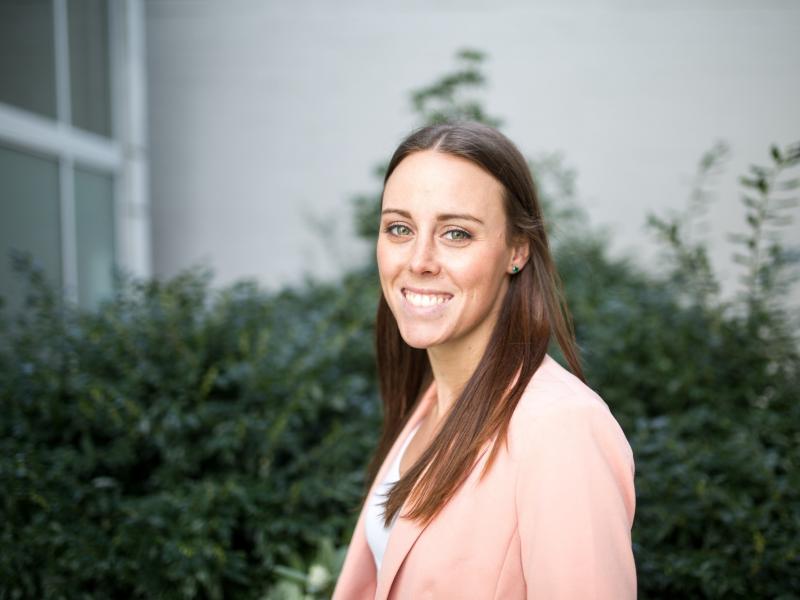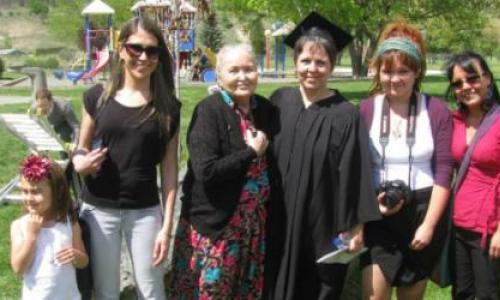
Faculty of Health Sciences (FHS) Doctor of Philosophy graduand Amanda Butler completes her degree ready to continue contributing to innovative research. She is the 2022 recipient of the Graduate Dean's Convocation Medal, an annual award that recognizes graduating students that have accomplished outstanding academic achievement.
Initially completing her Master of Arts in Criminology at SFU, her passion for research in the intersections of health and justice brought her to the FHS PhD program in 2016 after working as a Program Manager with the late FHS professor Elliot Golder at the Centre for Applied Research in Mental Health and Addiction.
“In this role I gained invaluable experience in grant writing, leadership, stakeholder relations, research, and community engagement, and I really clarified my research interests.”
Her doctoral thesis, “Mental health needs, substance use patterns, and risk of reincarceration among adults admitted to provincial prisons in British Columbia, Canada” used population level administrative data from the BC Corrections system to study the intersections of mental health needs, substance use patterns, and incarceration. She found that the prevalence of people in BC correctional facilities with co-occurring mental health needs and substance use disorders increased dramatically in less than a decade. Butler reiterates that understanding the needs of this highly marginalized population is critical for service planning and resourcing.
“We are in the process of publishing another study from my thesis that examines the relationship between co-occurring disorders and reincarceration patterns. We found that people who have co-occurring disorders have the highest risk of returning to custody shortly after release when compared to people with mental disorder alone or no disorder,” she explains. “They are also the most likely group to have other forms of structural disadvantage such as low education, unemployment, and homelessness. Clearly this is a group of people that our health and justice systems is failing.”
Butler appreciates the focus on interdisciplinarity and social justice in FHS, and she is grateful to the faculty members for mentoring her through her PhD program.
“Dr. Ruth Lavergne, my co-supervisor, embodies all the best qualities of a mentor. She is conscientious, responsive, and brilliant – truly, one of the smartest people I have ever known. I do not have enough words to express my gratitude for her consistent support for 5 years,” she says. “I am also deeply grateful for Dr. Hasina Samji - who patiently supported by training in epidemiology which was critical for my dissertation work, and Dr. Scott Venners – his regression modelling class is incredible!”
With the completion of her PhD, Butler is currently continuing to fuel her passion for research in the intersections of health and justice.
“I am currently working as a research consultant with Correctional Health Services and the Ministry of Public Safety and the Solicitor General. I am also doing a part-time Postdoctoral Fellowship with Dr. Fiona Kouyoumdjian in the Department of Family Medicine at McMaster University where I am focusing on opioid-related deaths after release from prison,” she explains. “I hope to keep working in research and policy related to improving the lives of people who have experienced structural violence and marginalization.”
This story was originally published on the Faculty of Health Sciences website on June 8, 2022.













